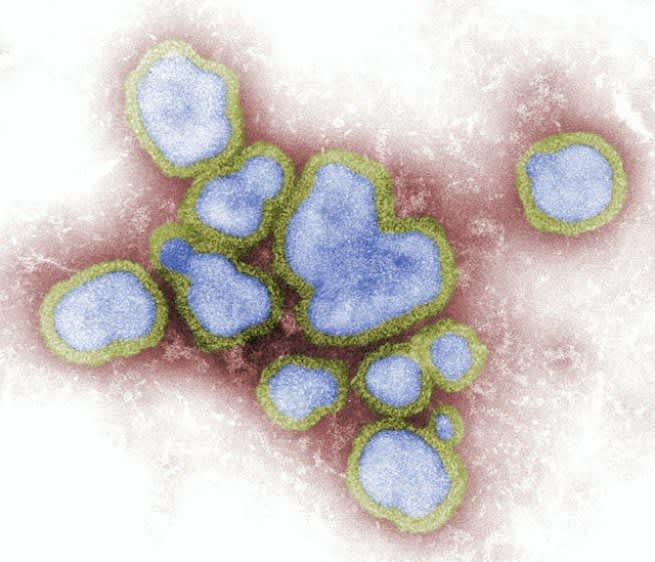Your Guide to Mold in Your Home
Preventing mold growth is a priority for homeowners and renter residents to maintain asset value and family health. The U.S. Environmental Protection Agency (EPA) does not regulate or monitor mold spores. Many insurance companies don't cover it or put a dollar cap on the value they'll pay for mold remediation. We refer you to Frequently Asked Mold and Moisture questions for more detail to develop a complete understanding of the subject.
In certain regions, mold growth and its ramifications are severe problems. The Sunshine State (and South Florida in particular) is a good example: While it attracts droves of new residents buying real estate to live, work, and play in great weather, the consistent heat and humidity (energized by rain, damp ocean air, and hurricanes) create the perfect conditions for mold growth.
So, mold control critically depends on moisture control. In other words, homeowners should detect and clean up the mold without delay and simultaneously address the water problem creating the mold in the first place. Therefore, if your home or condo has a spreading mold infestation, you may need professional help.
Why is there mold in my home?
White and black molds are connected to nature, resulting from decomposing organic matter (usually dead plants or leaves fallen to the ground), such as fallen leaves and dead trees. It's when it creeps indoors that massive problems emerge. Molds grow by multiplying tiny spores humans can't see without magnification, floating like pollen in the wind through the air. Water meeting wood (or drywall) and other surfaces generally results in dampness, creating the perfect conditions for mold growth. However, the frequent complaint of "mold growing in my home" disappears by removing the unwanted water and wetness. No matter what mold type we're dealing with, none can survive in bone-dry conditions.
Can mold make me sick?
Molds can create health problems, such as allergens, skin irritants, hay fever, sore eyes, runny noses, and other low-level physical aggravations - immediate or delayed. However, if spores get into the lungs, they can trigger asthma attacks, bronchitis, and even pneumonia. In short, prevent mold growth in crawl spaces and exposure wherever possible; homeowner lifestyle quality is sure to improve.
How does mold threaten asset value?
Trying to sell a house ridden with mold is a challenge. Also, expect home inspections to cut thousands from any standing offer as the damage assessment arises. Undoubtedly, mold, left to its own devices, will continue to grow and destroy the surfaces it rests on. Thus, you'll save on doctor bills (see above) and home repairs by quickly eliminating the scourge with proven mold remediation methods. Although this article is helpful and informative, it doesn't step in for a professional physician or mold remediation expert's attention when mold conditions have deteriorated to an advanced level.
How do I get rid of mold?
Please understand that fixing a moldy section of your home without hitting the source of dampness between the eyes won't get rid of it. For example, removing and replacing a mold-ridden ceiling section is not a solution unless you simultaneously remedy the leaks in the roof. It goes back to the point we make above - mold contamination and water intrusion are Tweedle Dee and Tweedle Dum - they go hand in hand.
Mold Cleanup
Who you should call in depends on the problem scale. As a general rule, mold growth of less than ten square feet may be something you can handle yourself. However, expansive mold in the heating/ventilation/air conditioning and exhaust fans (i.e., the HVAC system), crawl spaces, inside window frames and door jambs (rotting the wood), faulty appliances, sewage, or in diverse spots all over the residence calls for professional input. We refer you to EPA's Mold Remediation in Schools and Commercial Buildings, also an applicable guideline for residential owners needing to upscale the project.
You can't use any contractor for mold. They must have experience in the arena from corner to corner. Check references and certifications. Most reputable realtors can direct you to the best professionals in the field. Another thing on the prevention side - regularly clean the air ducts in your home and stop the air conditioning if you suspect mold is in the system.
Mold elimination guidelines - 10 helpful tips and techniques
Our tips and techniques to prevent mold growth and minimize mold exposure may significantly differ from those selected by professional cleaners or remedial specialists. Notably, do-it-yourself jobs frequently leave stains behind or cosmetic deterioration - perhaps permanently. Specialists work with sophisticated instruments, keeping collateral damage to a minimum.
- The first thing to check for is plumbing leaks.
- Next, call an HVAC specialist to identify mold anywhere in these intricate systems.
- Satisfy yourself there are no leaks, moisture exposure, and damp spots.
- Attack the mold on hard surfaces with bleach detergents and scrubbing hard with clean water.
- Cut out and replace mold-contaminated porous materials, such as ceiling tiles and carpet, so you don't take a chance with empty spaces and crevices you can't get to with elbow grease.
- Health problems triggered by mold must be a priority when exposing yourself or others to Cleaning Moldy Areas and addressing Hidden Mold (see more below).
- Don't attempt to caulk moldy (or previously moldy) surfaces not yet dry - it will just peel off.
- Don't hesitate to consult specialists if you're in a quandary for a mold solution. For example, furniture and art restoration/conservation, fire or water restoration, and carpet/rug cleaning (commonly listed in phone books) represent a tremendous support arena.
- Check references of specialists connected to or affiliated with professional organizations.
- Bathrooms are the most challenging rooms to keep free of mold. For example, shower mold in the walls ties in with ventilation. So, running a fan, opening windows, and cleaning more frequently are the best ways to keep mold at bay.
What to Wear When Addressing Crawl Spaces and Cleaning Moldy Areas
When talking about mold spores, it's crucial to protect eyes, skin, and internals from inhalation. So, we advise donning an N-95 respirator (cost around $18), gloves, and goggles. Whether you opt for the cheaper paper version (versus rubber), the most vital consideration is a tight fit and following the instructions - according to the Occupational Safety and Health Administration (OSHA). More specifically, ensure you wear long, plain rubber gloves extending midway up the arm when using water and a mild detergent, but scuba diving material (natural rubber, neoprene, nitrile, polyurethane, or PVC) for more potent chemicals. Whatever you do, don't resort to your bare hands. Ventilation holes in goggles are acceptable.
How Do I Know When the Mold Remediation or Cleanup is Complete?
Presuming you've done your homework about water leakage, the visible mold must disappear, and the area should be odorless. It may require revisiting the site a few times to confirm. Moreover, it must be habitable by friends and family without health fears or complaints. Putting these signs together to form an integrative picture should deliver ŌĆ£the all-clear.ŌĆØ
Moisture Control Tips
When you have moisture control, it's the pathway to mold control. Address leaks quickly and decisively within 48 hours. Roofs and gutters are the primary culprits, so check them regularly. Stagnant water pooling against exterior walls is another yellow light, as are air-con unit trays, drain lines, and filters. We also advise indoor humidity control to avoid over-condensation, gauging it with a humidity meter (around $30 in most hardware stores). Condensation is the leftover of excess humidity; it's as simple as that. The question is, if your readings show high humidity, how do you reduce it?
Actions that cut condensation and humidity down
- Lessen water vapor internally by venting clothes dryers, stoves, and other appliances to the outdoors.
- Balance your air-conditioning with dehumidifiers.
- Keep exhaust fans running - especially in bathrooms - and open windows when showering steam fills the room.
- Cool the house down, but keep an eye on the power bills.
- In problem spots where condensation consistently reappears, insulate cold surfaces and pipes.
- If it's an investment property leased to a tenant, ensure the latter reports any water-related problems to you or your property manager, and don't take alerts like this lightly.
- Suppose you are a renter with an unresponsive landlord doing nothing about mold issues reported. In that case, we advise putting your complaints formally into writing, and if there is still no reaction, contact your state health department.
Testing or Sampling for Mold
Rust is an in-your-face tell-tale sign of mold in the system behind it or around it. Homeowners rely on signals like this without sophisticated mold detection devices. However, a mold specialist can test the home thoroughly from corner to corner and top to bottom. They know what to look for and have the instruments that clear the way. They also follow proven mold detection protocols converging on accurate sampling methods and their interpretation as recommended by the American Industrial Hygiene Association (AIHA), the American Conference of Governmental Industrial Hygienists (ACGIH), and other professional organizations).
Hidden Mold - The most common kind
Unfortunately, mold doesn't deliver itself on a silver platter for all to see. No, it hides behind walls, inside pipes, attics, under carpets, inside ductwork, and other hard-to-see or get-to places. You don't want to experience health symptoms to know there's a mold threat hanging over you and your family, so stay vigilant by being sensitive to musty smells and unsightly stains.
Investigating Hidden Mold Problems
Again, don't hesitate to summon professionals to confirm your suspicions. It will save you from tearing down wallpaper, lifting floorboards, and cutting out drywall trying to locate the contamination. Remember, unnecessary release of spores can make the problem much worse than it needs to be. For example, when ripped, moldy wallpaper on the underside can be a massive spore-spreader you don't want to create. Nine times out of ten, the best solution to a hidden mold situation is hiring an experienced professional.
Mold Cleaning Material, Biocides, and Our Conclusion.
Biocides destroy living organisms, which means they're lethal to mold. The best ones are chlorine bleach compounds, which may be overkill in many instances. The idea is to use materials that effectively eradicate the mold type you have, which may first require sampling. Approach using biocides with extreme caution, and, as directed above, protect skin, eyes, and breathing. Why? These liquids are highly potent, emitting ammonia and other toxic fumes. Remember, mold spores will not grow if you've resolved the moisture problem as recommended above. Please note: In some cases, dead mold can still create allergens, so killing mold isn't the answer. Removing the mold altogether is the only way to be 100% safe.
┬Ā
More from this category
Housing options in Boca Raton Florida
113 0 Zev Freidus 4 years ago in Real Estate
Living the Delray Beach Lifestyle
131 0 Zev Freidus 4 years ago in Real Estate
A Home Buying Guide for Teachers
1060 0 Zev Freidus 2 years ago in Real Estate
17 Celebrities Who Live In Florida and their mega mansions
1281 0 Zev Freidus 2 years ago in Real Estate




